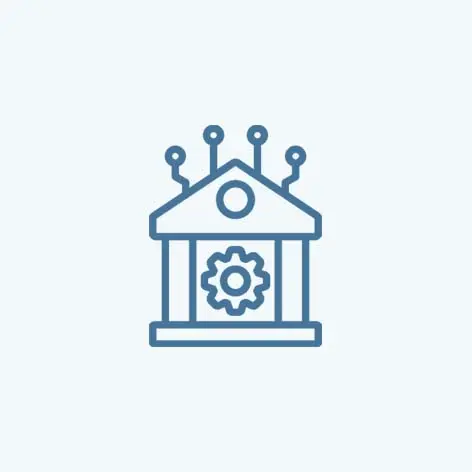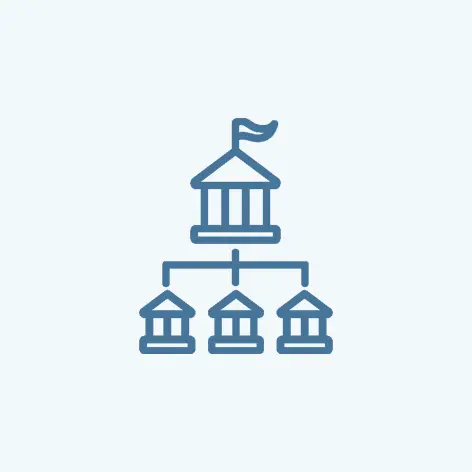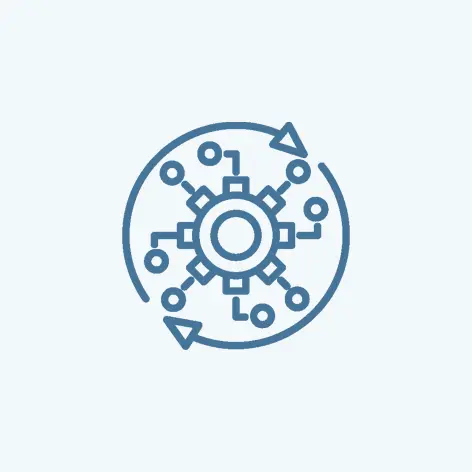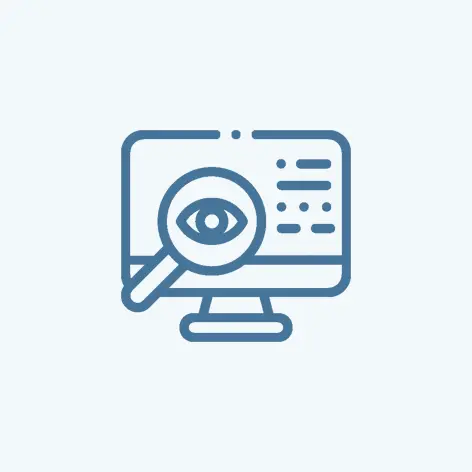Introduction Of Government Compliance Program
Based on Royal Decree No. (2020/90) establishing the Ministry of Transport, Communications and Information Technology, which is responsible for developing and issuing policies, standards, and circulars in the field of information technology and ensuring their implementation by the units of the State’s Administrative Apparatus. The role of the Government Compliance Program is to monitor and measure the extent to which these units comply with the issued policies, and to create an effective regulatory and governance environment for the information technology sector, which also serves as a key enabler and catalyst in driving digital transformation.
Program Objectives

Raising the maturity level of government entities in IT governance.

Creating a transparent environment between the Ministry and government entities.

Contributing to driving digital transformation.

General monitoring of the extent to which the units of the State’s Administrative Apparatus comply with the policies and standards related to IT governance.
Program Activities
Mid-Year Evaluation (Self-Assessment)
The mid-year self-assessment aims to monitor the compliance of the units of the State’s Administrative Apparatus through their own evaluation. This is done by accessing the Digital Excellence System (system link) in order to prepare them for the field audit activity.
End-Year Audit (Field Audit)
The end-year field audit aims to verify the compliance of the units of the State’s Administrative Apparatus with the policies and standards issued by the Ministry of Transport, Communications and Information Technology. The Government Compliance Team conducts on-site visits to all government units and records observations in the Digital Excellence System (system link).
Program Services
Awareness Workshops
The awareness workshops aim to raise government entities’ awareness of IT governance, the policies issued by the Ministry, and the indicators of the Government Compliance perspective.
Consultative Sessions
The consultative sessions aim to support government entities in improving their overall performance, while addressing challenges and identifying opportunities for improvement and development.
Government Compliance Guidelines
The Government Compliance Perspective Guide, which serves as a reference outlining the approved indicators for monitoring the compliance of the State’s Administrative Apparatus units with the policies issued by the Ministry of Transport, Communications and Information Technology. This guide is updated annually.
FAQ
It is a program aimed at monitoring the fulfillment and compliance of the State’s Administrative Apparatus units with the mandatory policies and standards issued by the Ministry of Transport, Communications and Information Technology in the field of information technology. The program was launched in the last quarter of 2019. The Government Compliance Program covers key indicators, including IT governance, remote access to IT and communications resources, continuity of IT and communication services, open data, cloud computing, artificial intelligence, internet usage by government units, and digital accessibility.
- To promote a culture of IT governance among the State’s Administrative Apparatus units.
- To ensure compliance with the policies and standards related to IT governance.
- To clarify the roles and responsibilities assigned to IT departments and sections, each according to its functions and specializations.
- To contribute to driving the government’s digital transformation.
- To support increasing the percentage of Omanization in the IT sector.
It is the process of verifying the extent to which the State’s Administrative Apparatus units comply with the policies and standards issued by the Ministry through the electronic system (Digital Transformation Excellence System). The system enables government units to upload the required documents and evidence for evaluation under the Government Compliance Perspective.
- IT Governance
Achieving and maximizing the value of information technology by maintaining a balance between realizing benefits, reducing risk levels, and optimizing the use of resources in alignment with the institution’s goals and directions.
- Remote Access to IT and Communications Resources
Regulating the general governance of preparing and using remote access to perform work tasks through IT and communications resources and environments.
- Continuity of IT and Communication Services
The ability of the State’s Administrative Apparatus units to plan for and respond to emergencies to ensure the continuity of IT and communication services at a predetermined acceptable level.
- Open Data
A set of data made available to users through the government unit’s website, provided in a format that allows beneficiaries to use and reuse it for any commercial or non-commercial purpose, in line with this policy.
- Cloud Computing
A model that enables on-demand, ubiquitous access to a shared pool of configurable computing resources (such as computer networks, servers, storage units, applications, and services) with minimal administrative effort.
- Regulations for IT-Related Job Holders
Government administrative units must comply with the regulations for IT-related job holders, contributing to enhancing the efficiency of those working in information technology.
- Use of Artificial Intelligence Systems
Enabling government administrative units to develop innovative solutions based on artificial intelligence systems and advanced technologies of the Fourth Industrial Revolution.
- Use of the Internet by Government Administrative Units
Regulating the use of the Internet within government administrative units by employees, visitors, and contractors, while avoiding inappropriate or illegal use of the service.
- National Digital Accessibility Policy
Aims to ensure equal and fair opportunities for persons with disabilities and the elderly to access services and information available on ICT platforms and devices, while removing barriers that may hinder such access.
- Appointing a liaison from the Digital Transformation Committee within the government unit.
- The liaison accesses the Digital Transformation Excellence System.
- The liaison conducts the evaluation of the government unit during the specified periods for Digital Transformation Excellence assessment and uploads the supporting documents to verify the unit’s compliance with the requirements of the Government Compliance Perspective.